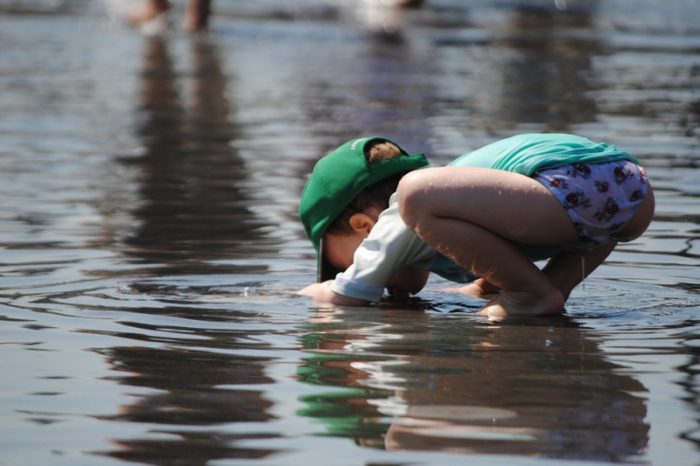
Say Goodbye to Spring Allergies: How Air Purifiers Can Help Conscious Parents
As the buds bloom and nature awakens from its winter slumber, spring brings with it a vibrant burst of life. However, for many, this seasonal
Call us on 0333 015 4345 or email hello@theconsciousparent.co.uk

Toddler discipline can be a challenge for any parent. Should you do as your parents did, whether they were stern disciplinarians or embraced a more liberal approach? Or do you feel that you want to do things differently?
The good news is that when it comes to toddler discipline the same techniques works for most little ones. Of course, you and your child will have your own distinct personalities and share your own unique relationship. That said, the following tips help most parents to teach their toddlers healthy boundaries.
1. Take a balanced approach
Try to avoid being too rigid or easy going when it comes to toddler discipline. Being too strict usually results in a child that doesn’t dare to do anything without your permission, which can lead to submissiveness and over-reliance.
On the other hand, if you are too laid back it can come across to your child as though you just don’t care, which may lead to more ‘naughty’ attention seeking. Equally, if you always let your child get away with things, they will not understand the importance of boundaries, respect and even their own personal safety; all areas that every parent should be at pains to teach their child.
2. Criticise the actions not the baby
Avoid telling your baby or toddler that they are bad. If they are at the stage where they don’t know right from wrong, they won’t have a clue why you are chastising them in the first place.
If they are old enough to understand that they have done something wrong, calling them bad can be shaming and can damage their self-esteem. Instead, try to explain to the child why their actions are not acceptable. This way, they will learn why they should not do certain things and gradually be less likely to do them again.
3. Set age appropriate rules
While it is fair and reasonable to expect your 1-year-old not to pull at their sister’s hair, it is clearly unfair to expect them to tidy all their toys away or to eat meals without any mess.
A child that doesn’t yet have the physical or mental ability to follow house rules is not naughty. As well as not understanding what you are telling them, babies and young toddlers won’t necessarily remember what you have told them, as they have limited memory. In fact, you’ll probably have to ask them not to do something repeatedly before it sinks in.
4. Don’t set too many rules
Remember that your baby or toddler is new to the world and has a lot to learn. Setting too many rules can be confusing, so stick to the most important ones first so that they can focus on those.
With each rule, they will need to learn what it relates to and why it exists in the first place, often with some exploratory testing to work out whether the rule even makes sense. Where it is not dangerous, it can even be good to allow a child to explore and make mistakes, as this can help them learn more quickly.
5. Hold your ground
When chastised, some children will turn on the cheeky smile in the hope of getting around you. Others will wail uncontrollably in the hope that you will finally give in to spare your eardrums. This is all a test to see at what stage you will fold, if at all.
By standing your ground and making it clear that there is no room for negotiation, your child will quickly work out that you take the rules seriously. After all, if you don’t take your rules seriously, why should they?
6. Be consistent
It’s totally understandable that a tired parent will want to give in and ignore the rules from time to time or laugh at a mischievous act that flaunts the rules but looks funny. However, even in these situations it’s important to try to be consistent with how you check your child’s behaviour.
Rules that change from mood to mood or situation to situation can be very confusing to a child, making them feel that the rules are only there to suit you, not to help them. And it’s really unfair to be angry with a child for doing something that you laughed with them about the day before.
7. Try distraction
If you keep asking your child not to do something, but they are proving slow to learn, try moving them away from the situation and distracting them with something else. As you do so, feel free to say ‘No’ and to explain why. Then you can offer an alternative to stop them fixating on the thing they have been told not to do. For example, if a child is trying to pull a plug out of the wall, you can take them away and suggest they feed the dog instead.
8. Be patient
Getting angry with your child will only result in an angry or upset response, so where possible try to keep your cool and follow the toddler discipline tips above. Set a reasonable number of rules that your child should be able to get their heads around, remind them repeatedly, try distraction if that helps and remember to be consistent.
With so much focus on your little one, it can be easy to forget about yourself. Most importantly, you need to be realistic about what hampers your own ability to be patient and consistent. If you find you are getting over-tired, ask your partner, family or friend to take over, even if it’s just for a blissful hour or two to recharge your batteries. Setting and standing by rules takes strength, so you’ll find it much easier if you reboot your own energy levels from time to time.

As the buds bloom and nature awakens from its winter slumber, spring brings with it a vibrant burst of life. However, for many, this seasonal

Babies don’t develop self-awareness until they’re around two years old. At around this time, they’ll come to realise that they’re seeing themselves when they look

The Conscious
Parent Company
G4 Business Centre
19-21 Carlisle Street East
Sheffield S4 7QN
0333 015 4345
hello@theconsciousparent.co.uk
